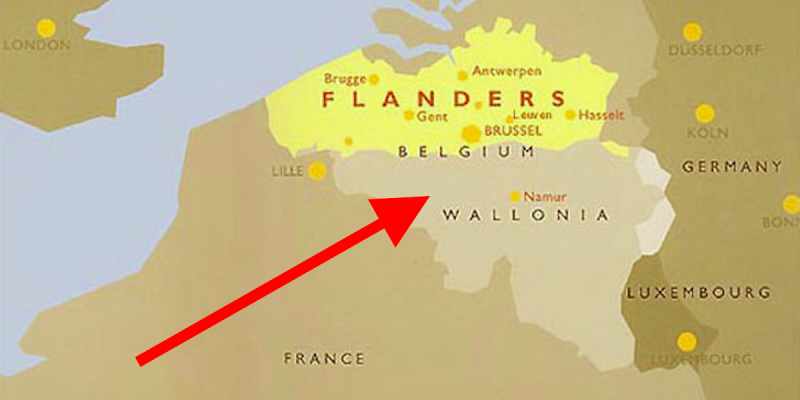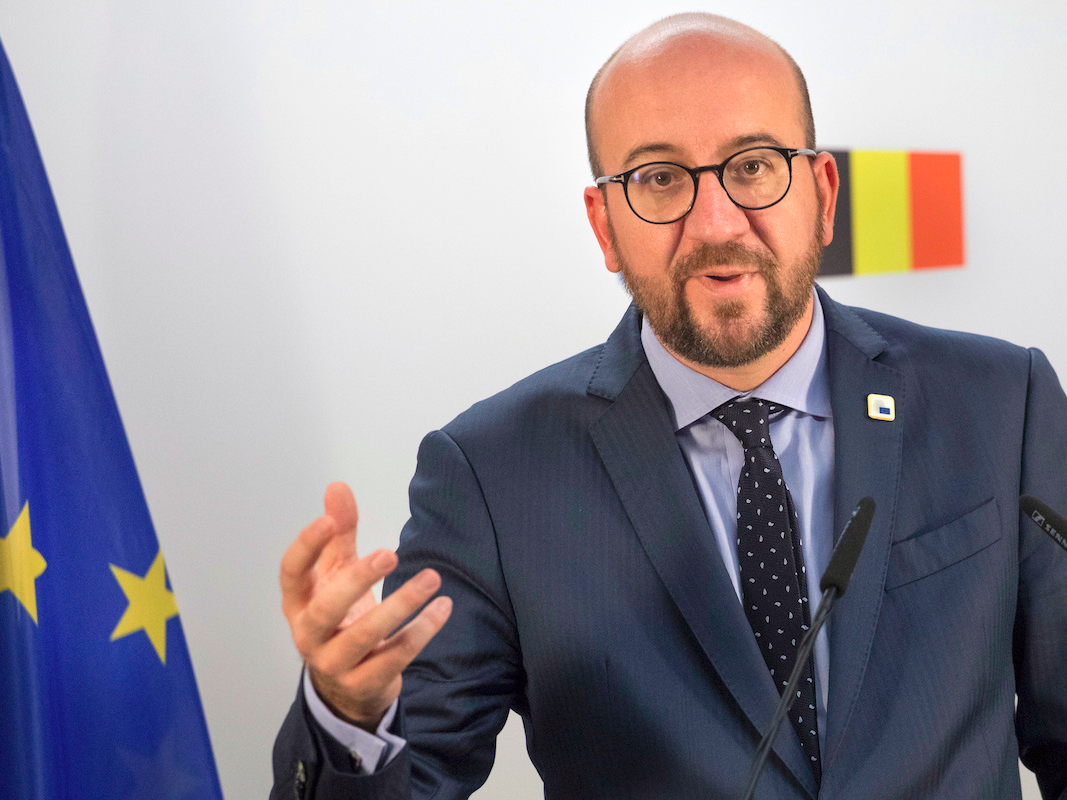A single regional government in Belgium may have just killed off all hope that Britain will be able to strike a trade deal with the European Union after the Brexit is complete.
This is because Wallonia, the Belgian region, on Friday rejected the EU-Canada Comprehensive Economic and Trade Agreement, or CETA, which has taken the 28-nation bloc seven years to negotiate with Canada. Then on Monday it again rejected the EU’s “ultimatum” on changing its mind, according to the news agency AFP.
“It won’t be possible to respect this ultimatum,” the head of Wallonia’s Parliament, Andre Antoine, told RTL radio in Belgium, according to AFP, in reference to the deadline set by the European Council’s president, Donald Tusk.
The deal was all but done and just needed to be ratified by all EU member states before being implemented.
But Wallonia, which is one of Belgium’s six legislatures, refused to support CETA on Friday after having vetoed it earlier in the week, meaning Belgium’s national government cannot give the trade deal its approval. Charles Michel, the Belgian prime minister, confirmed later on Monday afternoon that he was not able to sign the agreement.
Linda Lim, a trade expert at the University of Michigan, told Business Insider on Monday that the structure of the EU allowed crucial deals like CETA to collapse at the 11th hour.
Why Wallonia rejected the deal
The reason Wallonia, a French-speaking region of about 3.6 million people, vetoed CETA has a lot to do with the region's deeply embedded socialist traditions and the antiglobalisation sentiment that is prominent there.
Wallonia was once one of Europe's main industrial heartlands, but a decline over decades has left many of its people feeling left behind as other regions continue to benefit economically from the effects of globalisation.
Last month, the US equipment manufacturer Caterpillar announced that it would be closing its factory in the Wallonian city of Charleroi, with at least 2,200 jobs set to be lost. The city's unemployment rate is over 20%.
With this context in mind, the Wallonian legislature's decision to block CETA is being regarded as a form antiglobalisation protest, amid concern that the deal would grant too much power to multinational corporations.
'Canada is disappointed and I personally am disappointed, but I think it's impossible'
Chrystia Freeland, Canada's minister of international trade, said in an official statement on Friday that the Canadian government was "disappointed" and that striking a deal would be "impossible."
It is now evident to me, that the European Union is incapable of reaching an agreement.
"Canada has worked, and I personally have worked very hard, but it is now evident to me, that the European Union is incapable of reaching an agreement - even with a country with the European values such as Canada, even with a country as nice and patient as Canada," she said.
"Canada is disappointed and I personally am disappointed, but I think it's impossible. We are returning home. At least I will see my three children tomorrow at our home."
Tusk, the European Council president, said earlier last week that failure to complete the EU-Canada deal would make striking post-Brexit trade deals with Britain nearly impossible.
"If you are not able to convince people that trade agreements are in their interests ... we will have no chance to build public support for free trade, and I am afraid that means that CETA could be our last free-trade agreement," he said.
Tusk's remarks were echoed by Cecilia Malmstrom, the EU's trade commissioner. If the EU "can't make it with Canada," the Swede said earlier this week, "I'm not sure we can make it with UK."
Most Brits probably would not be able to point out Wallonia on a map. But the region's power to stand in the way of an international trade agreement is another reminder of how difficult the Brexit negotiations will be for UK Prime Minister Theresa May's government.
Belgium, like other EU member states, operates under a federalist political system. This means that significant powers are granted to regional governments, allowing them to block legislation at the national level.
In other words, Britain does not just need European leaders to agree to trade deals after it separates from the EU; it also needs regional legislatures across the continent. It is a massive undertaking.
Labour MP Stephen Kinnock, who lived and worked in Brussels before entering Westminster politics, touched upon this when Business Insider interviewed him last week.
He said: "What you have to recognise that is after Article 50 is done, the next step of negotiations is agreement by an absolute majority in the European Parliament and ratification in all 27 member state parliaments. I would be absolutely amazed if you could do that in less than a year.
"You only need the Slovenian Parliament, for example, to say, 'Actually, we don't like what's just been agreed on the tariffs on automobiles,' and it all gets held up in the Slovenian Parliament," he added. "I think that's one of the reasons why hardcore Brexiteers are pushing for the hard version."
